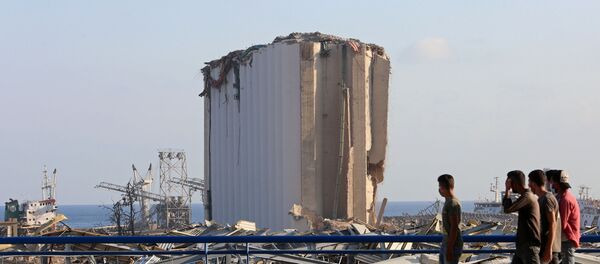Days after the Lebanese capital was rocked by a deadly explosion, presumably caused by the detonation of 2,750 tonnes of ammonium nitrate which had been improperly stored, India's Central Board of Indirect Taxes & Customs (CBIC) has directed its field offices across the country to immediately verify and confirm the safety of such hazardous and explosive material within 48 hours.
The order issued by the CBIC, the national agency responsible for administering customs, GST, the central excise duty, the service tax and narcotics, has come in response to Tuesday's massive, deadly explosion in Beirut.
In a statement issued on Twitter on Thursday, the CBIC said it has "urgently directed customs and field formations to immediately verify and confirm within 48 hours that any hazardous and explosive material lying in warehouses and ports across the country meets all safety and fire standards and presents no danger to life and property. This precautionary step has been taken in view of the recent incident of an explosion in a foreign country caused by such material."
.@nsitharamanoffc @FinMinIndia pic.twitter.com/ID6CyNbNsr
— CBIC (@cbic_india) August 6, 2020
Since the blast in Beirut, public concerns have emerged over the storage of the ammonium nitrate in Chennai, the capital city of the southern Indian state of Tamil Nadu, as storing large quantities of the chemical is considered hazardous. Small fires or other such accidents nearby can trigger the chemicals, resulting in massive explosions.
It has also come to light that several containers of ammonium nitrate, containing nearly 700 tonnes of the chemical, are being stored at a private container freight station in Chennai.
The blast in Beirut on 4 August left at least 137 people killed, 5,000 injured, and nearly 300,000 homeless as a large part of the Lebanese capital has been completely destroyed. According to Lebanese officials, the explosion was caused by 2,750 tonnes of ammonium nitrate in the city port that blew up because of a lack of due safety measures. The government has vowed to find and punish those responsible.





